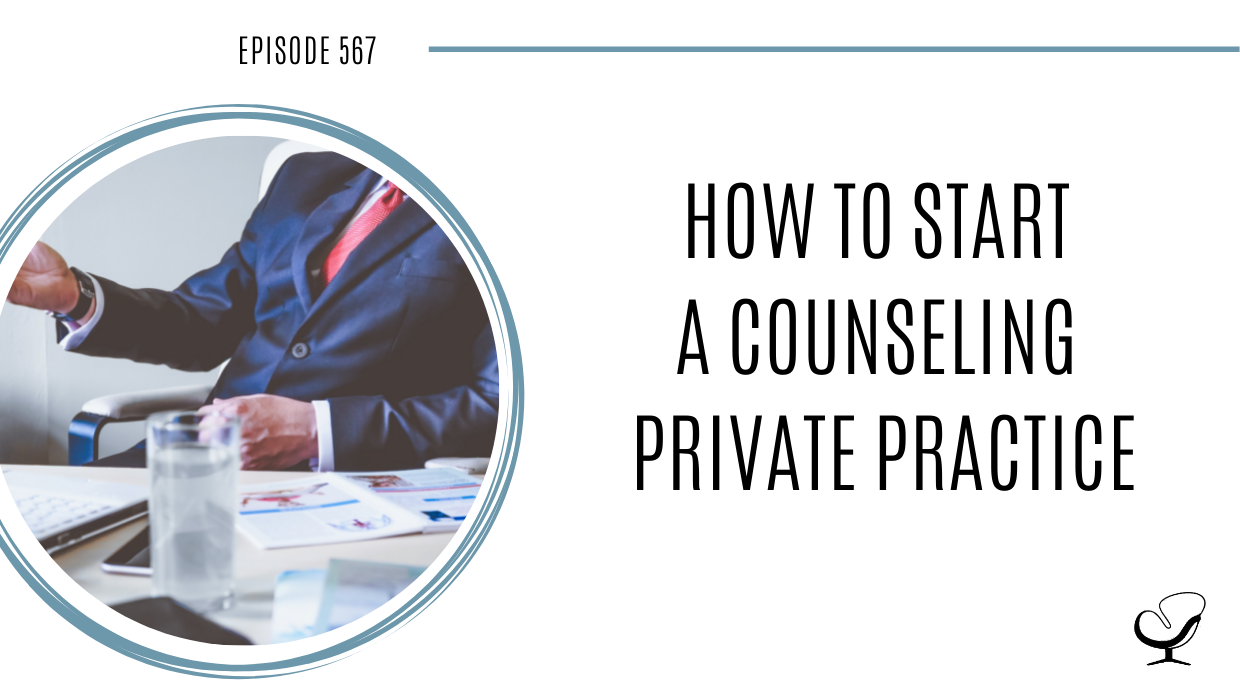Podcast: Play in new window | Download | Embed
Are you looking to start your very first practice from the ground up? What are some of the basics that you need to be aware of when it comes to building a practice? Which resources are available to help you succeed?
In this podcast episode, Joe Sanok speaks about how to start a counseling private practice.
Podcast Sponsor
Next Level Practice is an on-going support system for mental health clinicians, counselors, and coaches who want to start and scale their own private practice featuring HUNDREDS of trainings, LIVE calls with our experts, a robust resource library, an exclusive online community, and SO MUCH MORE!
In This Podcast
- Ask yourself: what is your ideal private practice?
- Why do you want an LLC?
- How to bring in clients and clinicians
Ask yourself: what is your ideal private practice?
What is your ideal private practice? Is it one that eventually becomes a group practice, is it a side gig that you just see two or three people a week … First and foremost, think through right now what makes sense [for you]. (Joe Sanok)
Figure out the place: it can be in-person and it can be online, whichever you, your potential clinicians, and your clients prefer.
Figure out a way to connect: you will need a connecting line between yourself and your clients to get the message out there that you are ready and waiting to receive them. This could be in the form of:
- Websites,
- Advertising,
- Social media
Figure out your name:
- You could be more creative to embody a metaphor, or
- You could be more practical to give an idea of the ways in which you help patients.
Why do you want an LLC?
You want to separate out your business income … your expenses, you want to be able to keep track of that … a business veil [to] separate your business expenses from your personal expenses. (Joe Sanok)
To minimize the risk of finances co-mingling between your personal and professional income, you can set up:
- A separate bank account. It can be nice to have a local banker to work with.
- Several accounts from the beginning: an operations account, a payroll account, a tax account, a profit account
How to bring in clients and clinicians
Now that you have the business side more set up, you can start to bring in some people to serve and to hire.
Meeting with other therapists to talk about your specialty area and who maybe do not share your specialty may encourage them to refer patients out to you that they cannot assist. You can do the same for them, and foster a mutual and beneficial working relationship.
Build up your website with some core aspects to keep an eye on:
- Work on your about page.
The biggest thing people do wrong with [their about page] is they start with “I went to x college and I specialized in x and I did this x” … no, the client is still thinking is this person a fit for me? And so you want to make sure you’re thinking through the client’s eyes with every single page. (Joe Sanok)
- Your home page. Every client that lands on your website should know who it is that you help within three seconds. Put your specialty, counseling, and therapy front and center.
- Show the outcome of therapy and show pictures of local structures and landmarks.
- Have a “schedule a phone call” or “schedule a consultation” button or tab for clients to follow through on
- How do people contact you? Do you have a business phone, a business email?
Having these core aspects on your website set out will help you to bring in clients to work with, and clinicians who feel that they resonate with the work you do and might like to sign on under your banner.
To bring in clients:
- Make sure you are networking with other therapists in your area,
- Make sure you are blogging and publishing blogs that link to your website online so that you can boost the visibility of your website,
- Think about what sorts of things your clients may be searching for when they are struggling. Brainstorm these sorts of things and write blog posts around these types of content.
Check your systems and make sure that all the streams are running correctly and doing what they need to be doing.
Staying organized and making sure that you are getting good information from a solid source is a big part of starting a private practice. (Joe Sanok)
As your practice grows, make sure to be aware of and track your referral sources. Make sure to pay yourself 50% of the net profit either weekly or even monthly.
As time goes on and your practice grows, even more, you can hire a bookkeeper to make sure that your numbers are balancing well, and then you are on track!
Books mentioned in this episode
Useful Links:
- Rae McDaniel on Helping Transgender, Non-Binary, and Questioning Folks | PoP 565
- Ask Joe questions about counseling and practices
- Get on the email list to start a practice
- Get on the email list to grow a current practice
- Form your LLC today
- 28-step checklist to start a practice
- Sign up for Next Level Practice
- Events – click on the event’s dropdown
- Sign up to join the free webinars and events here
- Podcast Launch School
- Practice of the Practice Podcast Network
- Free resources to help you start, grow, and scale
- Apply to work with us
Meet Joe Sanok
Joe Sanok helps counselors to create thriving practices that are the envy of other counselors. He has helped counselors to grow their businesses by 50-500% and is proud of all the private practice owners that are growing their income, influence, and impact on the world. Click here to explore consulting with Joe.
Thanks For Listening!
Feel free to leave a comment below or share this podcast on social media by clicking on one of the social media links below! Alternatively, leave






